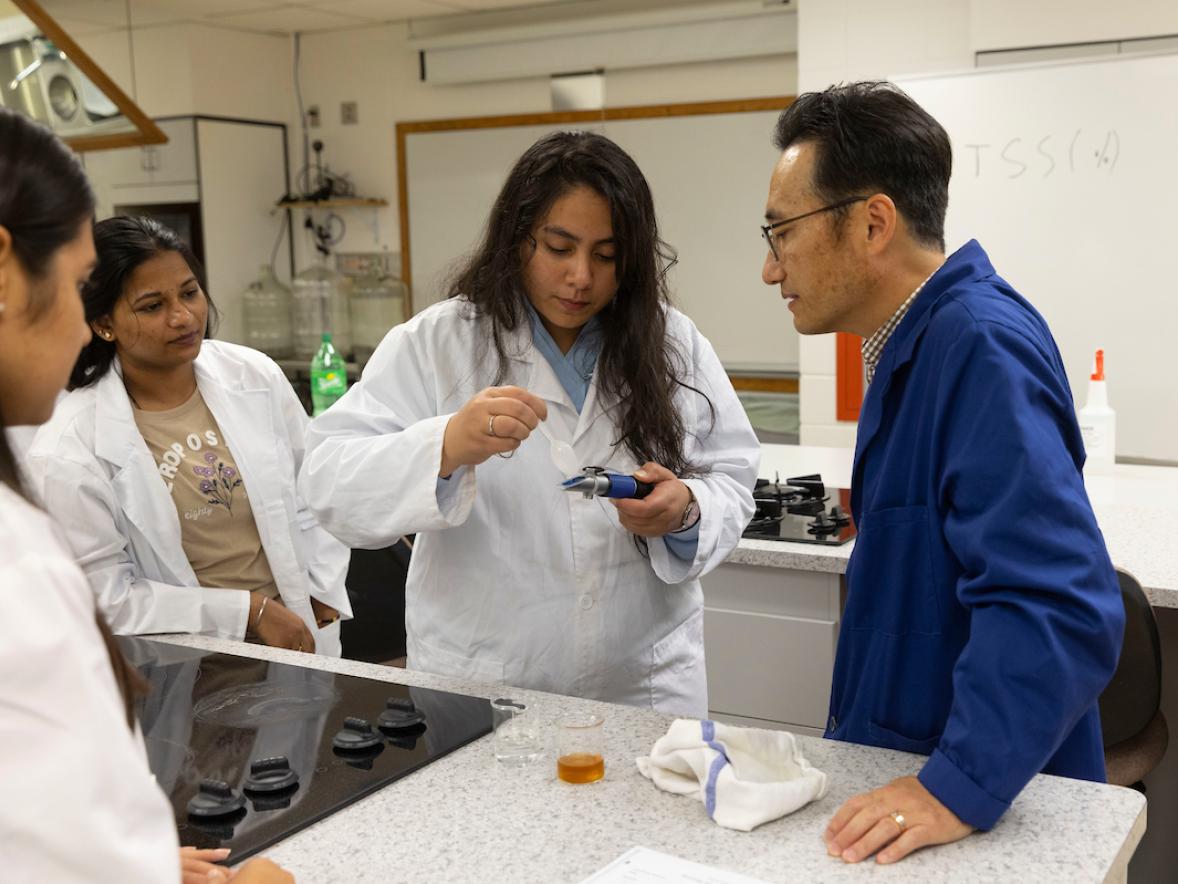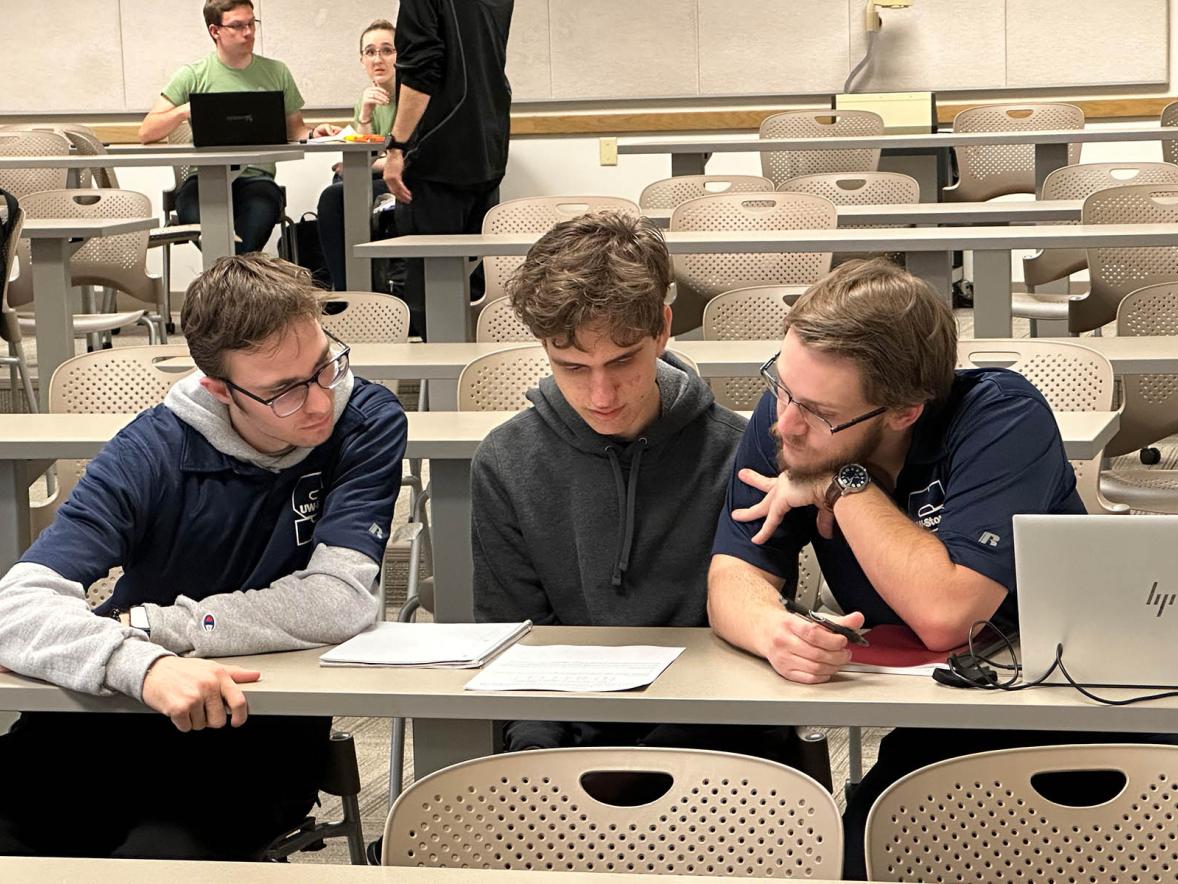An expanded lab at UW-Stout offers students and faculty opportunities in ongoing, hands-on research in food process engineering within the kinesiology, health, food and nutritional sciences department.
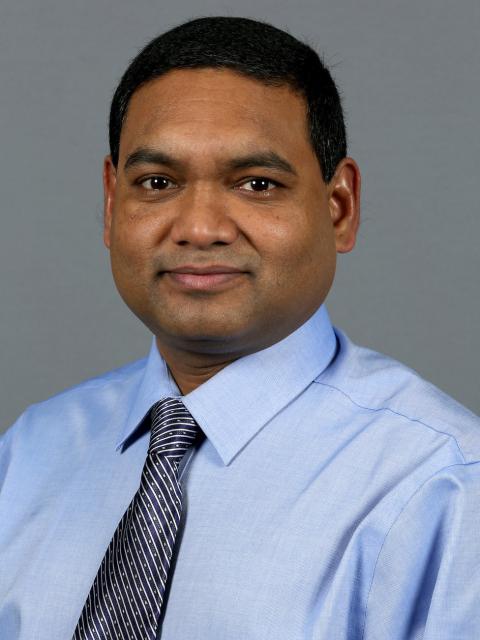
The Food Process Engineering Research Lab, in Heritage Hall, was expanded by Assistant Professor Pranabendu Mitra.
He is serving as a principal investigator, working with graduate and undergraduate students who are conducting research to address issues in the sustainability of the fruit juice, soybean and brewing processing industries.
“New approaches to create value-added, nutrition-dense balanced food products by converting food wastes are needed for the sustainability of the food processing industries,” said Mitra, program director for M.S. food science and technology.
He is conducting three research projects:
- On the physicochemical and nutritional qualities of high fiber and antioxidant-rich cranberry pomaces and vegetables in new baked goods
- Developing innovative baking technology to convert cranberry pomace to value-added food products
- Utilizing byproducts and plant proteins to develop value-added food products using emerging extrusion and 3D food printing technologies.
Cranberry pomace is a byproduct comprised of the seeds, skins and stems of the fruit.
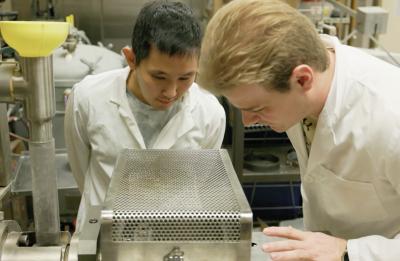
The annual value of the U.S. cranberry industry is about $3.55 billion, and Wisconsin is leading the industry, Mitra said. “However, cranberry juice processing industries are producing a huge amount of waste – the cranberry pomace byproduct. The disposal is a big challenge because of environmental safety concerns – it cannot be used for field filling without special treatments because of uncontrolled fermentation. And the management of the pomace is costly.”
Mitra added that the apple, strawberry and orange juice processing industries generate many millions of tons of pomace waste each year, as well.
“Revenue can be generated by converting such food wastes into value-added foods by using innovative processing technologies such as extrusion, baking and 3D food printing,” he said. “This can lead to a rise in sustainability and competitiveness of food industries worldwide.”
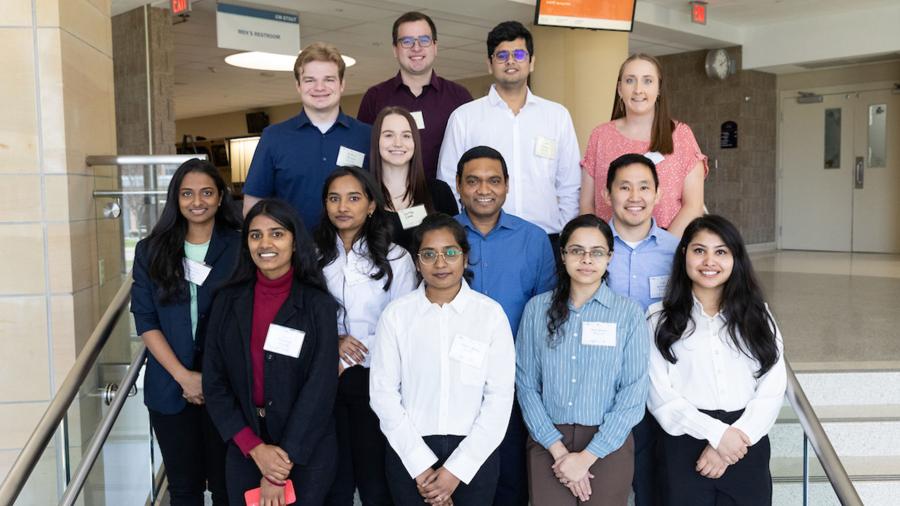
A recent survey, conducted by American market research company NPD, indicated that more than half of Americans want more plant proteins than carbohydrates in their daily diets to maintain muscle function and movability, satiety and treatment of many diseases, Mitra said.
His research is supported by a WiSys Spark grant, the UW-Stout Faculty Research Initiative grant, Evelyn Van Donk Steenbock Endowed Chair grant and other supportive funds.
Creating healthy, sustainable food solutions
Graduate students Joshua Bernin, Sadhana Thokachichu, Luke Bickelhaupt, Rajesh Dangal and Sumi Regmi are researching ways to convert food waste and byproducts into healthy, sustainable foods for their master’s thesis.
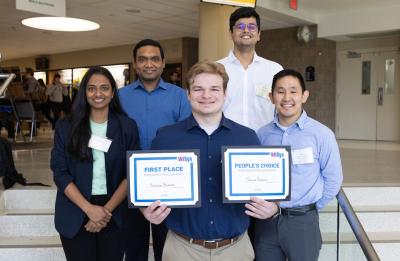
Joshua Bernin was awarded first place, as well as People’s Choice winner, for his research at the WiSys Quick Pitch during UW-Stout’s Research Day on May 3.
Bernin’s master’s thesis, “The Development of Nutritionally Dense Cranberry Pomace Infused Protein Rich Soy Protein and Rice Flour Blend Deep-Fat Fried Extruded Snacks,” combats the waste produced in the food industry, he said.
“I am developing a snack that is using extrusion technology and the byproduct cranberry pomace to help reduce the waste being produced in the food industry, as well as providing farmers and the industry a way to make more money,” Bernin said.
“This product will also have a positive ecologic impact because instead of the cranberry pomace being thrown into landfills it will be used to produce more food.”
WiSys Quick Pitch is a fun competition where students persuasively describe their research in three minutes. Food science and technology students presented 11 posters on Research Day.
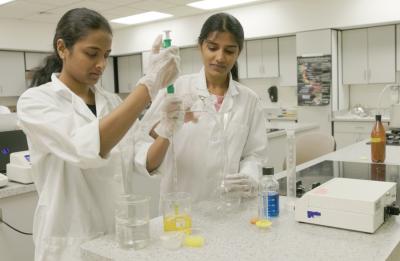
Sadhana Thokachichu is considering the global issue of how to reduce brewery byproduct waste by incorporating spent barley grain into extruded breakfast cereals made of soy, rice and quinoa flour blends.
“More than 38 million tons of spent grain, which is rich in protein and fiber, is discarded as waste per year globally. It's crucial to think about healthy breakfast cereals rich in protein and fiber,” Thokachichu said.
“I thoroughly enjoyed working on this project as this helped in developing problem-solving abilities, critical thinking, report writing, planning, and scheduling, which are key skills in project management.”
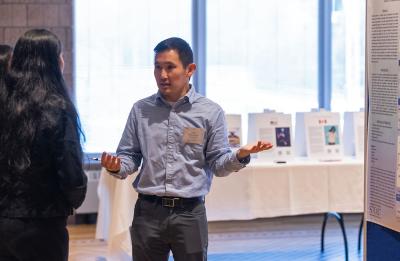
Luke Bickelhaupt is researching processes to optimize cranberry pomace, soy flour and rice flour extrudates to develop a protein- and fiber-rich cereal.
“Incorporating cranberry pomace, a byproduct of the cranberry industry, helps reduce food waste nationally and globally and provides an overall more nutritious and functional ingredient in my product,” Bickelhaupt said.
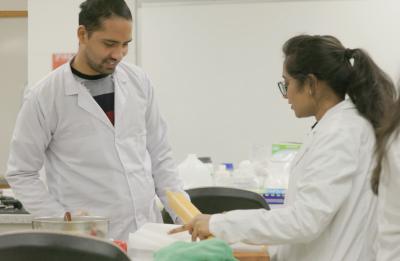
Rajesh Dangal is researching the optimization of a single-screw extrusion process and variables on the physical and nutritional properties of spent grain from brewing, soy flour, rice flour and cranberry pomace.
“My research is beneficial for the sustainability of cranberry juice processing industries and beer manufacturing industries because these byproducts are highly nutritious and can be an excellent low-cost source of dietary fiber, proteins and bioactive compounds for extrudates cereals and snacks,” Dangal said, adding that companies could save on the costs of waste disposal by repurposing the byproducts.
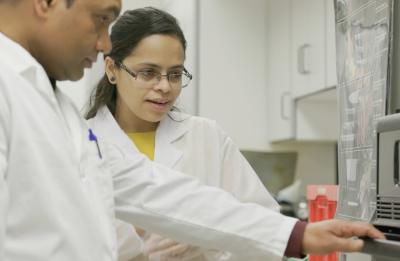
Sumi Regmi is developing a vegan yogurt utilizing plant milks derived from soybean, almond, quinoa and pinto beans, and is working to improve the texture and taste in vegan yogurts by optimizing the formulations and characterizing the physicochemical, sensory and nutritional qualities.
“The demand for nondairy vegan products is increasing because of health needs, like lactose intolerance and cholesterol free food for the prevention of cardiovascular risk, and ethical needs,” Regmi said. “Vegan yogurts can help in the improvement of gut health of consumers.”
Bernin and Bickelhaupt graduated in May, Thokachichu will graduate this December, and Dangal and Regmi will graduate in May 2023.





